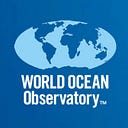Pollutants and the Ocean
Are we turning the world into a xenobiotic dump?
Dioxins and polychlorinated biphenyls, carcinogens, drugs, food additives, hydrocarbons, plastics, pesticides — all manner of human-driven interventions that are infiltrating the earth. Are we turning the world into a xenobiotic dump? Is there another way?
Today, in my view, we have strong gusts of wind, small craft warnings, sweeping away the last lingering deciduous leaves, twisting the branches of the conifers sideways, blowing in from away new thoughts, new words. Here’s one to consider: Xenobiotic, Wikipedia-defined as a chemical substance found within an organism that is not naturally produced or expected to be present within the organism, substances also that are present in much higher concentrations than usual. Natural compounds can become xenobiotic if they are taken up by another organism, such as the uptake of natural human hormones by fish found downstream of sewage treatment plant outfalls, or the chemical defenses produced by some organisms as protection against predators. The term xenobiotic is very often used in the context of pollutants such as dioxins and polychlorinated biphenyls and their effect on the biota, substances foreign to an entire biological system, i.e. artificial substances, which did not exist in nature before their synthesis by humans and may be grouped as carcinogens, drugs, environmental pollutants, food additives, hydrocarbons, plastics, and pesticides. When you think about these substances, their pervasive presence in our air, our water, our food chain, our bodies, our social organization, and our financial enterprise, you might conclude that the land has become an xenobiotic sump, the ocean an xenobiotic swill, the world an xenobiotic society so transformed by actions foreign to the laws of Nature that we can only truly understand our present condition as emerging evidence of a suicidal mutation.
Strong words. I agree. But just how far off the mark?
When we introduce a xeno or foreign factor into a natural process, that intervention, an exercise of mind over matter, may set in motion an unforeseen consequence where matter overwhelms mind eventually and disrupts even our most considered best intent. We are performing such an exercise now as we invent response to pandemic virus, hopeful that near-term success will prove immediately useful and protect us thereafter even if we have no proven certainty other than anecdotal studies and daily statistics over time. Nonetheless, we take the risk, balancing optimism and faith against pessimism and fear. We don’t know for sure, but we hope and trust, and if we’re wrong, well, we are left with just another foreign thing to which we must respond.
In the context of the ocean, I think of current suggestions of geo-engineering solutions, the dumping of billions of tons of iron filings into the ocean, for example, to counter acidification or mitigate carbon. It is a simple thing to propose, but a hugely difficult thing to perform. To accumulate the iron, we must re-open long abandoned mines, find the labor and technology to produce enormous quantity, transport it to the coast, load it onto ships and distribute it over vast areas in an often turbulent sea. The cost is almost incalculable, especially if you consider the expense of all the externalities including particulates, some toxic, in the air that will find their way into the ocean, ironically just in time to counter any effect of the proposed solution. All those chemicals that have proven so poisonous have been justified the same way: as a novel response implemented without clear understanding beyond of long-term or downstream countervailing outcome.
Is there another way? What is the opposite of xeno? I come up with the Greek prefix eo meaning “early” or “primeval,” thus the antonym of xenobiotic is eobiotic, defined as relating to any substance that grows within the body or an ecological system, a primeval condition before the introduction of foreign elements, in effect, a natural state. This dichotomy lies at the heart of the climate debate, and the determination to adapt to the consequence of human intervention and exploitation of natural resources, to mitigate deleterious effect, to invent or engineer some new, now desperate, not fully considered human response.
Could it be that Nature does not need us to heal? Could it be that Nature can do for itself what we cannot do for ourselves? Could it be that our anthropomorphic ego has outlived its usefulness and Nature will address the problem and deal with it as it has, without us, for millennia? Could it be that the best solution for us is to leave Nature alone, to respect its redemptive qualities, and change our aspirations and actions to enjoin its natural powers to our greatest advantage?
The wind has blown itself out. The trees and ocean horizon in my view reveal an architecture of beauty near and far, an outline of a system that, while always changing, has a logic within that works to keep it, season after season, year after millennial year, a place that cannot be equaled or improved, a place for nurture, continuity, and wellness that we call home?
PETER NEILL is founder and director of the World Ocean Observatory, a web-based place of exchange for information and educational services about the health of the world ocean. He is also host of World Ocean Radio, upon which this blog is inspired. World Ocean Radio celebrates 12 years this year, with more than 600 episodes produced to date.
